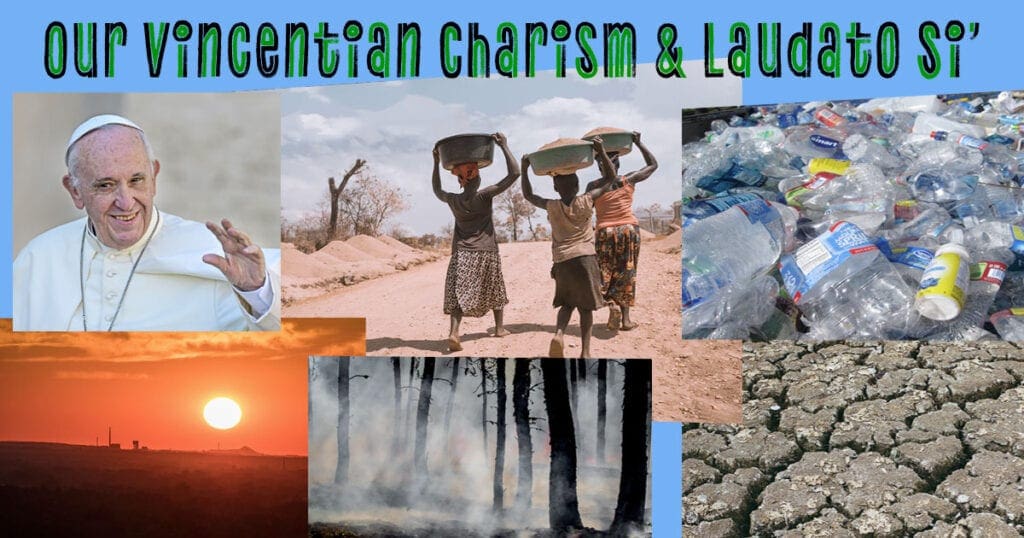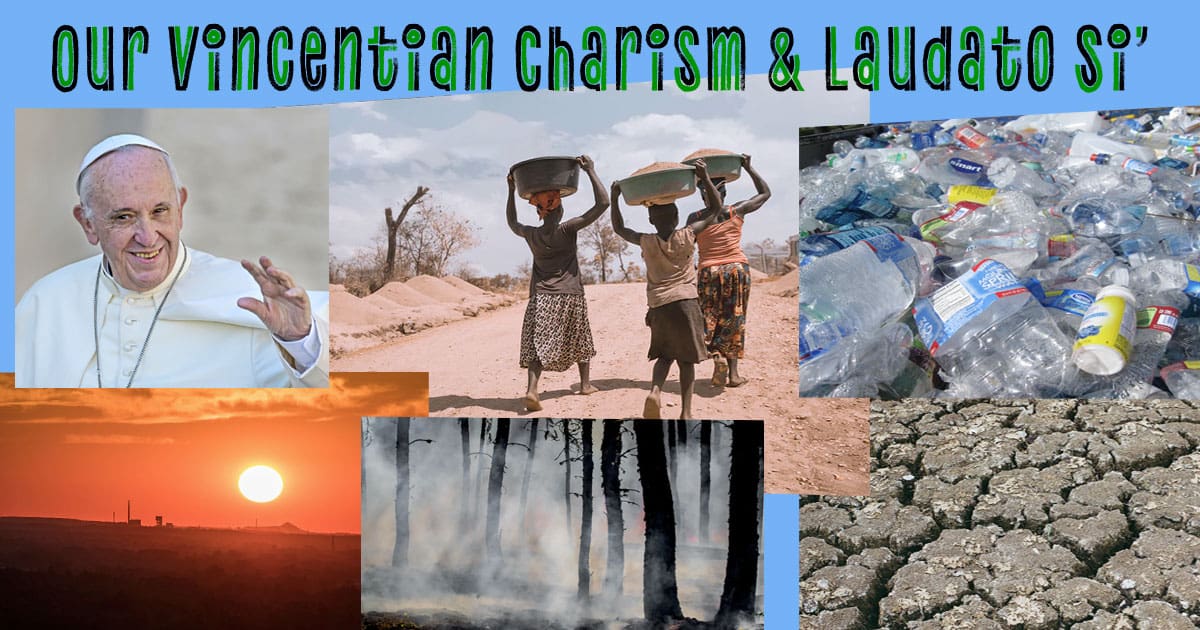Laudato Si and the Indigenous Worldview
“This sister now cries out to us because of the harm we have inflicted on her by our irresponsible use and abuse of the goods with which God has endowed her. We have come to see ourselves as her lords and masters, entitled to plunder her at will.” (Laudato Si # 2)
That striking statement by Pope Francis in his powerful encyclical Laudato Si, connects deeply with Indigenous spirituality, and serves as an example of what Naomi Klein expresses in her ground-breaking book, This Changes Everything. She notes how the issues faced by the Indigenous peoples and their efforts to deal with these issues are now serving as a unifying force with non-Indigenous peoples. What used to separate and divide is now uniting people concerned about the environment. Pope Francis is one of many strong voices beginning to unite with Indigenous voices in speaking out for the care of the environment.

Three critical elements of the Indigenous worldview resonate with the contents of Laudato Si:
The first is the conviction that human beings are not at the top of creation, but rather at the bottom as the most dependent beings of creation. This is a rather humbling position.
A second reality is the presence of the world view of the sacred, as opposed to the Western world view of the scientific, in which everything can be explained. For the Indigenous person, everything is sacred and spiritual, and beyond the merely rational and objective. Thus, for many, the Northern Lights are not just ions and electrons colliding, but rather are seen and felt as the spirits of the ancestors dancing.
A third element is the strong conviction that we are all related. The Cree expression, kahkiyaw ni wâkomakanak, is what is said by all the participants as they emerge from a sweat lodge, signifying they have just connected with all of creation during the ceremony.
It is good to keep these elements in mind when reading through the encyclical. Here is how Pope Francis resonates with the last element, in # 86: “No creature is self-sufficient. Creatures exist only in dependence on each other, to complete each other, in the service of each other.”
Along that line, we enjoy four levels of relationship in our lives – we have a relationship with God, with others, with ourselves, and with all of creation. I believe if Jesus was teaching on earth today as he did in Palestine two thousand years ago, the great commandment he gave us would have been to love God with all our being, to love others as we love ourselves, and to love all of his creation.
Biblically, Genesis tells us we are to have dominion over all of creation. Theologically, we are taught that we are to exercise prudent stewardship over creation. Within an Indigenous worldview, we are invited to walk in a harmonious relationship with all of God’s creation.
In # 67, Pope Francis reflects that Indigenous stance: “Although it is true that we Christians have at times incorrectly interpreted the Scriptures, nowadays we must forcefully reject the notion that our being created in God’s image and given dominion over the earth justifies absolute domination over other creatures.”
In line with that reality, Pope Francis, in # 8 of Laudato Si, reminds us that his friend, Patriarch Bartholomew, “has spoken in particular of the need for each of us to repent of the ways we have harmed the planet… ‘For human beings… to destroy the biological diversity of God’s creation; for human beings to degrade the integrity of the earth by causing changes in its climate, by stripping the earth of its natural forests or destroying its wetlands; for human beings to contaminate the earth’s waters, its land, its air, and its life – these are sins.’”
Pope Francis then adds, in # 11: “If we approach nature and the environment without this openness to awe and wonder, if we no longer speak the language of fraternity and beauty in our relationship with the world, our attitude will be that of masters, consumers, ruthless exploiters, unable to set limits on their immediate needs. By contrast, if we feel intimately united with all that exists, then sobriety and care will well up spontaneously.” And in # 42, he adds, “Because all creatures are connected, each must be cherished with love and respect, for all of us as living creatures are dependent on one another.” This certainly resonates with the Indigenous worldview.
Pope Francis also shows great respect for the Indigenous peoples, and challenges the world to show the same, with these very caring thoughts in # 146: “It is essential to show special care for Indigenous communities and their cultural traditions. They are not merely one minority among others, but should be the principal dialogue partners, especially when large projects affecting their land are proposed. For them, land is not a commodity but rather a gift from God and from their ancestors who rest there, a sacred space with which they need to interact if they are to maintain their identity and values. When they remain on their land, they themselves care for it best. Nevertheless, in various parts of the world, pressure is being put on them to abandon their homelands to make room for agricultural or mining projects which are undertaken without regard for the degradation of nature and culture.”
Pope Francis may never had exercised Indigenous ministry in Canada, but his pastoral approach, his ecclesiology, and his view of the world and the environment, certainly resonates with the best of that tradition, as he proclaims, in # 95, that “the natural environment is a collective good, the patrimony of all humanity and the responsibility of everyone. If we make something our own, it is only to administer it for the good of all.”
And that is a sobering, important reminder to us as a closing to this reflection – “if we make something our own, it is only to administer it for the good of all.”
Kahkiyaw ni wâkomakanak!
The Vincentian Charism and Laudato Si’ is our effort to share various ways that Vincentians find their charism connects with Laudato Si’. We encourage your comments on these posts and welcome anyone interested in submitting an article to email Jim Paddon at jpssvp@hotmail.ca.







0 Comments